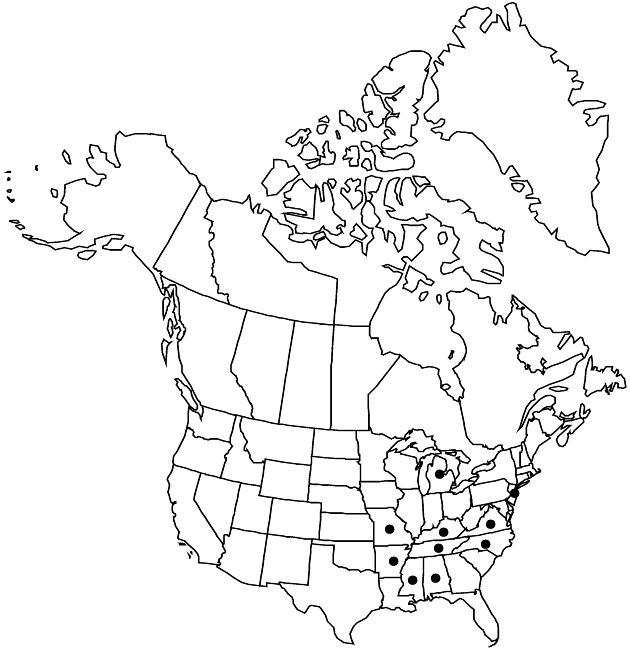Difference between revisions of "Heterotheca camporum var. glandulissima"
Brittonia 35: 146, fig. 1. 1983.
imported>Volume Importer |
imported>Volume Importer |
||
| Line 55: | Line 55: | ||
|publication year=1983 | |publication year=1983 | ||
|special status=Endemic | |special status=Endemic | ||
| − | |source xml=https:// | + | |source xml=https://bitbucket.org/aafc-mbb/fna-data-curation/src/2e0870ddd59836b60bcf96646a41e87ea5a5943a/coarse_grained_fna_xml/V19-20-21/V20_557.xml |
|tribe=Asteraceae tribe Astereae | |tribe=Asteraceae tribe Astereae | ||
|genus=Heterotheca | |genus=Heterotheca | ||
Latest revision as of 20:04, 5 November 2020
Plants 35–140 cm. Distal stems and peduncles moderately to densely stipitate-glandular. Distal leaf faces moderately hispido-strigose, sparsely to moderately stipitate-glandular. 2n = 36.
Phenology: Flowering Jul–Oct(–Dec).
Habitat: Limestone bluffs and glades, stream banks, margins of mixed mesophytic pine-oak woods, fields, roadsides, disturbed sandy areas
Elevation: 30–800+ m
Distribution

Ala., Ark., Ky., Mich., Miss., Mo., N.J., N.C., Tenn., Va.
Discussion
Variety glandulissima grows in the Ridge and Valley region of central and eastern Tennessee and adjacent Alabama, Kentucky, Mississippi, and Virginia. It is introduced and established in northern Arkansas, southern Missouri, northeastern North Carolina; occurrences in southern Michigan and northern New Jersey probably were emphemeral and did not persist.
Variety glandulissima often is taller than 100 cm and obviously stipitate-glandular. The variety appears to have evolved within historic times in Tennessee, or only recently to have evolved the traits necessary to make it a successful roadside weed. J. C. Semple (1983) discussed its range expansion over the last 100 years; it continues to expand its range in the eastern United States.
Selected References
None.